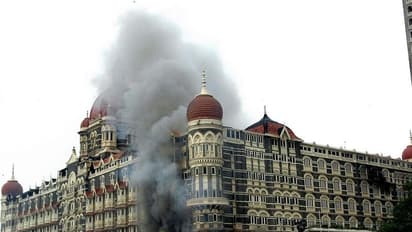US court approves extradition of 26/11 accused Tahawwur Rana to India

Synopsis
India’s National Investigation Agency (NIA) is probing into Tahawwur Rana's role in the 26/11 attacks carried out by Pakistan-based Lashkar-e-Taiba terrorists in 2008.
A US court in California has ruled that Tahawwur Rana, a Canadian businessman of Pakistani descent who is now in jail and wanted for his alleged role in the 2008 Mumbai terror attack, can be extradited to India.
According to the order dated May 16 from Judge Jacqueline Chooljian of the US District Court for the Central District of Los Angeles, based on the foregoing, the Court concludes that 62-year-old Rana is extraditable for the offences for which extradition has been requested and on which the United States is proceeding.
The National Investigation Agency (NIA) of India is looking into his involvement in the 2008 Lashkar-e-Taiba terrorist strikes on September 11, which were carried out from Pakistan. He was detained in the US when India requested his extradition for his involvement in these assaults. According to the NIA, it is prepared to start the process of bringing him to India through diplomatic channels.
Federal prosecutors have argued during court proceedings that Rana knew that his childhood friend, the Pakistani-American David Coleman Headley, was associated with Lashkar-e-Taiba and that by helping Headley and providing him with a cover for his activities, he was supporting the terrorist group and its associates.
Rana was aware of Headley's meetings, the topics that were covered, and the attack preparation, including some of the targets. According to the US authorities, Rana participated in the plot and there is reason to believe that he committed the actual crime of ordering a terrorist act.
Rana’s attorney, on the other hand, opposed the extradition. Six Americans were among the 166 victims of the 2008 Mumbai terror attacks, in which ten Pakistani terrorists besieged Mumbai for more than 60 hours while killing civilians at important and well-known places.
Check the Breaking News Today and Latest News from across India and around the world. Stay updated with the latest World News and global developments from politics to economy and current affairs. Get in-depth coverage of China News, Europe News, Pakistan News, and South Asia News, along with top headlines from the UK and US. Follow expert analysis, international trends, and breaking updates from around the globe. Download the Asianet News Official App from the Android Play Store and iPhone App Store for accurate and timely news updates anytime, anywhere.